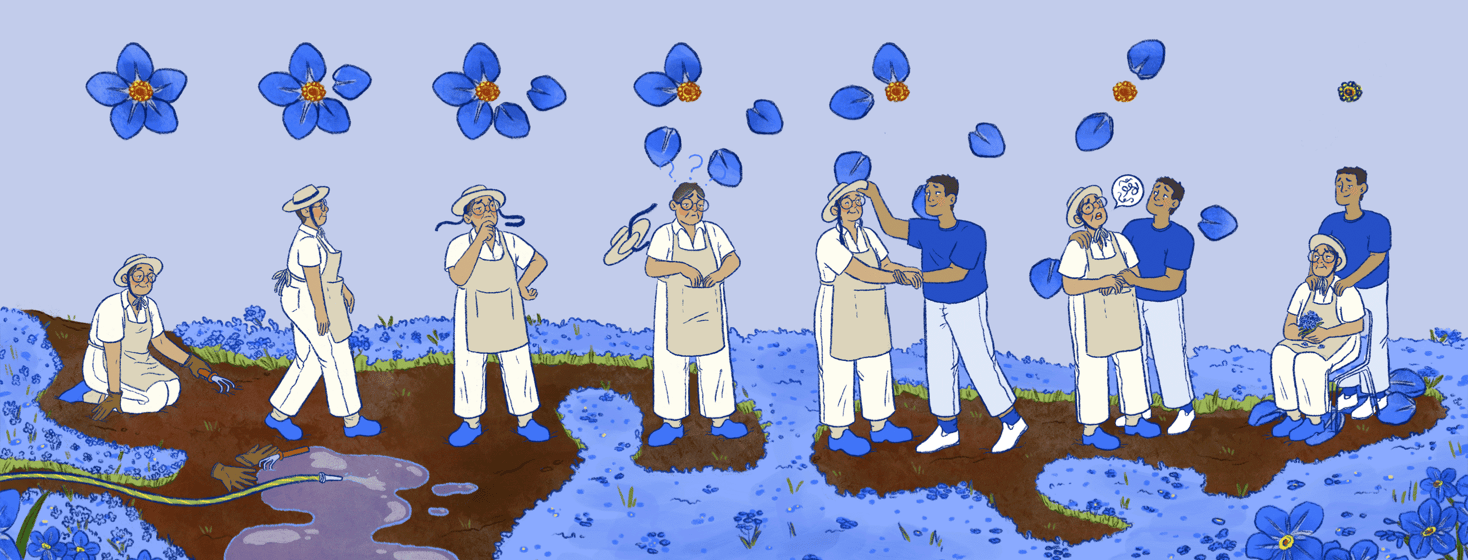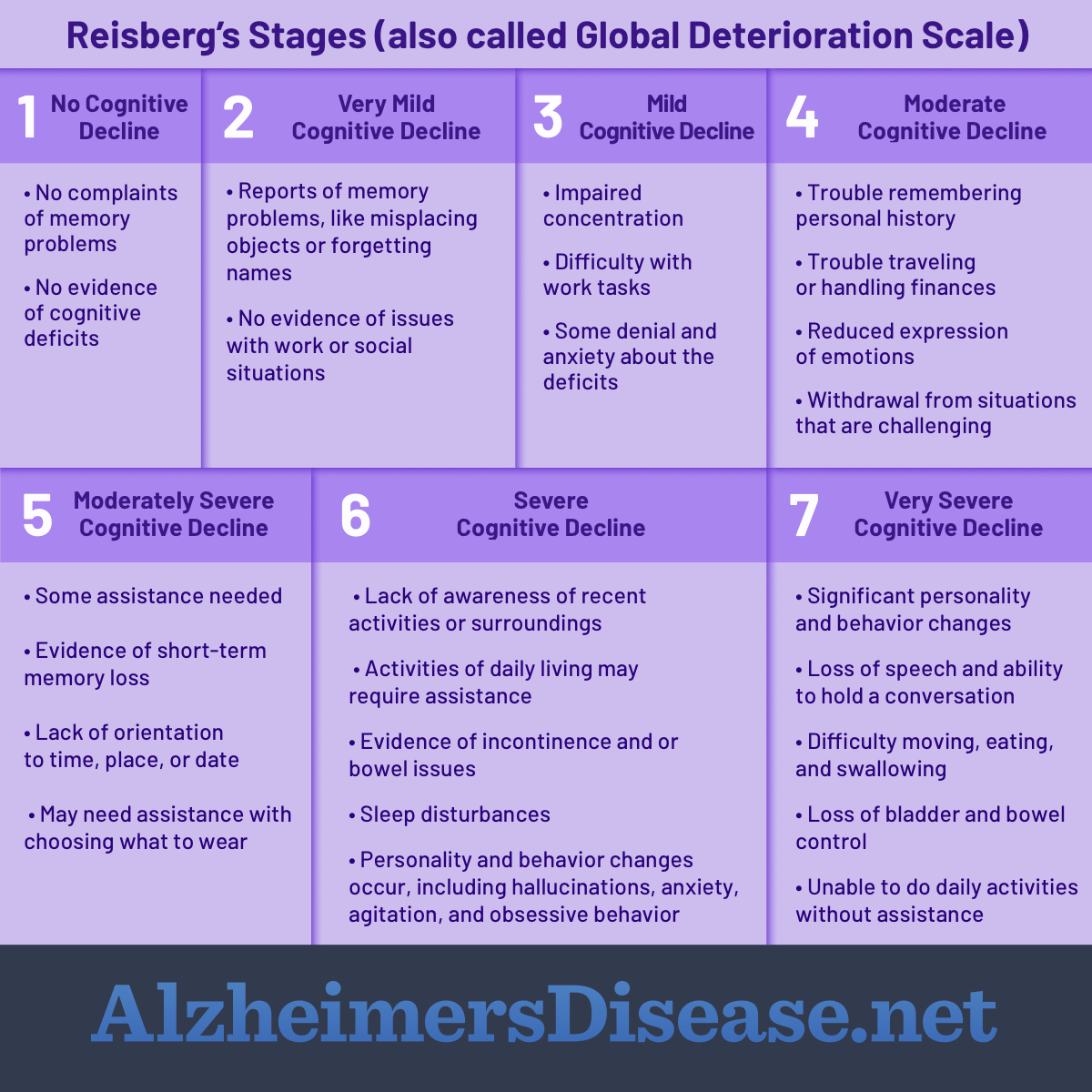Stages of Alzheimer’s Disease
Reviewed by: HU Medical Review Board | Last reviewed: January 2023 | Last updated: October 2025
As in many diseases, Alzheimer’s is progressive. This means that symptoms start out mild before progressing to become more and more disruptive to daily life. The progression of Alzheimer’s disease is defined by 7 clinical stages. These stages are also called “Reisberg stages” after the doctor who created them, Barry Reisberg, MD.1,2
These stages may not describe all of the symptoms for someone with Alzheimer’s all the time. But they are helpful for understanding what is happening and what kind of care is necessary for someone. The 7 stages are broken down into 4 sections:1,2
- No dementia (Reisberg stage 1)
- Early stage (Reisberg stages 2 and 3)
- Middle stage (Reisberg stages 4, 5, and 6)
- Late stage (Reisberg stage 7)
Figure 1. Reisberg's stages of Alzheimer's
No dementia (Reisberg stage 1)
In stage 1 there is no dementia present. People in this stage do not have symptoms of functional (ability to care for themselves) or cognitive (thinking) decline. They also do not have any Alzheimer's-related behavioral or mood changes.1,3
Early stage (Reisberg stages 2 and 3)
People with early-stage Alzheimer’s show signs of subjective memory loss – that is, memory loss that they notice but others do not. They may also have age-related forgetfulness and mild cognitive impairment. Cognitive impairment is problems with:1,2,4
- Memory
- Learning
- Focus
- Decision-making
As time goes on, people with early-stage Alzheimer's may begin to have problems communicating. These symptoms likely become noticeable to the people around them, particularly for people close to the affected person.1,2
People in this early stage of Alzheimer's may still have insight into the changes that are happening. They can likely inform others of the changes they feel and help to make a plan for their future care.2
Middle stage (Reisberg stages 4, 5, and 6)
Middle-stage Alzheimer’s is when the shift from moderate to severe cognitive decline begins. Mild to moderately severe dementia, which includes memory loss and disorientation, also starts. In the middle stage, doctors can diagnose symptoms as Alzheimer’s disease.1
Cognitive decline is much more evident for people in the middle stage. Daily and routine tasks (like walking home, paying bills, cooking, and using the bathroom) become more difficult. And by stage 6, these tasks may be impossible to complete alone.1,2
Memory loss also becomes more significant. People in stage 4 are able to readily recall facts (such as weather or the current head of state) and important dates (like days of the week or birthdays). As people progress to stages 5 and 6, they begin to have more difficulty with recalling such pieces of information.1
The key marker of the middle stage is the transition toward needing assistance with daily tasks. People with middle-stage Alzheimer’s will begin to need assistance with daily and routine tasks. They may struggle with living independently.1
Late stage (Reisberg stage 7)
People with late-stage Alzheimer’s need continuous assistance with basic daily activities. They eventually become unable to communicate verbally or look after themselves. They need care 24 hours a day. The late stage is also broken down into several substages.1,2
Early in stage 7, speech is limited to about half a dozen words. Speech continues to decline throughout stage 7. Eventually, people in this stage become unable to communicate verbally. They also lose the ability to smile or sit up independently later in stage 7.1
There is no set limit to how long a person with late-stage Alzheimer’s can survive. But many die from pneumonia, infections, or other conditions.1
Prepare as early as possible
One positive note is that each of the Alzheimer's stages lasts for several years. If you are on the lookout for early symptoms, you may be able to create a plan of care for yourself or your loved one with Alzheimer's. This will allow the person with Alzheimer’s to be as comfortable as possible at all stages. You can discuss the most appropriate care at every stage of Alzheimer’s with your doctor and the rest of your healthcare team.1,2

